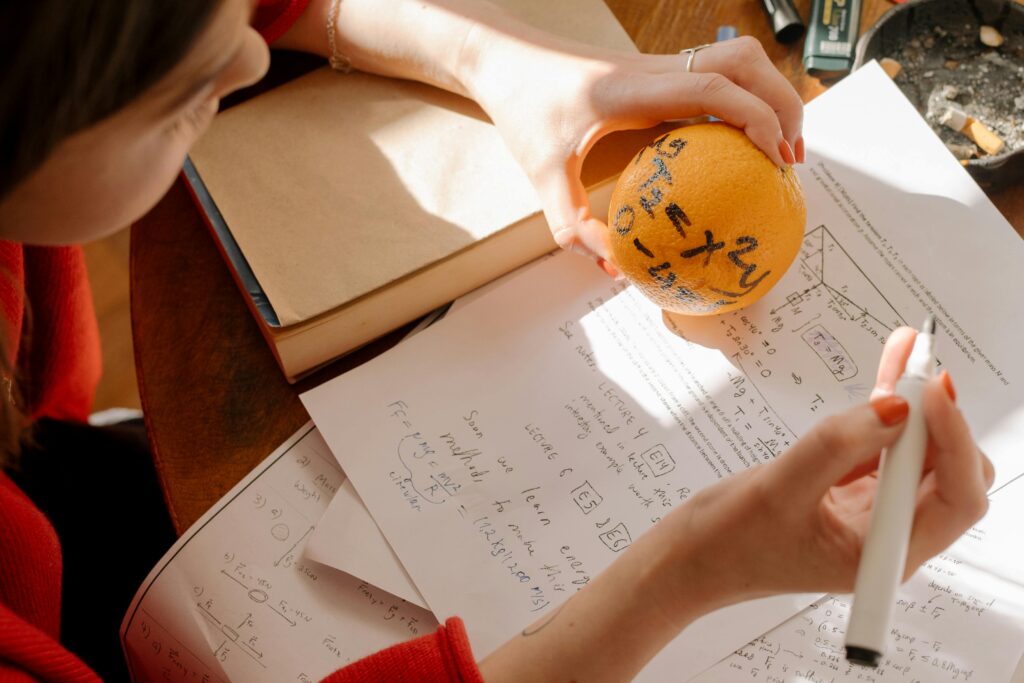"Mathematics may seem daunting, but with the right strategies, students can conquer challenges and build confidence in their skills."

Mathematics can be one of the hardest subjects for many students. It requires not only logical thinking but also a deep understanding of fundamental principles. The sheer complexity of some mathematical problems can drain both the energy and mental capacity of students, leaving them feeling overwhelmed and frustrated. No fear, there is always a solution! This article aims to provide valuable insights into seven effective strategies for parents to help their kids tackle maths with confidence and proficiency.
1. Don’t Ignore Maths Textbooks

Mathematics homework assignments serve as opportunities for your kids to solidify their understanding of the concepts discussed during class. It’s recommended not to jump straight into tackling complex questions, as it could be time-consuming. Starting with simpler questions from the textbook allows your kids to grasp the fundamentals before moving on to more challenging tasks. Afterwards, comparing their solutions with the textbook’s answers can help them identify any missteps in their approach. The textbook has been written in a way to help break down the thinking process required for new topics. Use it well!
2. Review Past Tests and Quizzes

Another effective way to improve maths skills is to review past tests and quizzes. Instead of merely glancing over the mistakes, your kids should take the time to rework the questions they answered incorrectly. (If you need to, rewrite those sums out for them on another piece of paper.) This active engagement helps reinforce the correct methods and trains their problem-solving skills.
3. Write Down and Learn Formulas

Mathematics, much like language, has its own set of vocabulary, or in this case, formulas. Kids must familiarise themselves with these formulas before a test to ensure they grasp what’s being asked of them. Encouraging them to write down formulas for different equations can aid in their memorisation process.
Transforming these formulas into formula cards and integrating them into interactive activities can enhance children’s engagement in learning. You could consider s writing them on sticky notes and strategically placing them on their study table or incorporating them into games. You can even consider decorating their room or study spaces with diagrams and formula posters to create immersive learning environments. Any visual reinforcement can be highly effective. Through repeated exposure, these formulas gradually become embedded in their memory, sometimes even subconsciously.
4. Understand the Derivation

Maths requires the use of logical thinking, and also offers different ways to solve problems. While memorising formulas is important for tests, understanding where they come from is even more crucial. Kids can’t just memorise formulas; they need to know why they work. For example, Rather than only memorising multiplication tables, kids can understand the concept by relating it to repeated addition. For instance, if they have 3 groups of 4 apples each, they can count by 4s three times (4 + 4 + 4 = 12) to understand why 3 x 4 equals 12.
Encouraging kids to think about why maths works the way it does helps them understand it. This kind of hands-on learning not only helps them with maths but also teaches them to think critically and solve problems.
5. Keep it Neat

A maths workbook is a valuable tool for kids. Teaching them to keep it neat and organised sets a good foundation for effective studying. Encourage kids to write clearly and legibly, using headings and subheadings to structure their work and highlight important points throughout the exercises.
One common challenge kids face is deciphering their handwriting, which can sometimes resemble a maze. To help them navigate through their work smoothly, advise them to always include the question number and the entire numerical question, leaving ample space between each problem as they progress down the page. If they make mistakes, it’s important not to simply scribble over them but rather to mark them with a small cross and include a brief note about what they’ve learned. Keeping sketches and doodles to a minimum also helps maintain focus and prevents distractions from the task at hand.
6. Form a Study Group

Some kids may find it challenging to be actively engaged in the classroom. They might feel hesitant to ask questions in front of their peers or fear being judged by the teacher for not understanding certain concepts. In such cases, establishing study groups can be beneficial. Working alongside friends or siblings creates a supportive environment where kids can feel more comfortable asking questions and discussing their doubts. By studying in groups, kids can help each other stay focused and learn from one another’s perspectives.
Parents can play a role in facilitating these study sessions by offering a safe environment at home and ensuring that the study spaces are comfortable and conducive to concentration. On the parents’ side, it involves not only monitoring their children’s study sessions but also providing support and understanding if their children need to study late into the evening, without fearing for their safety.
7. Practice Online

Parents can enhance their children’s learning by providing access to resources and platforms that promote active learning. This might include downloading practice questions, enrolling them in online classes – read ‘Singapore’s Top 5 Tuition Centres’, or conducting a quick Google search. Additionally, educational videos on platforms like YouTube offer valuable insights and explanations.
These are some of our YouTube channel recommendations:
- Khan Academy: Known as the best and most popular instructional channel, Khan Academy offers a wide range of videos covering both complex and basic topics across various subjects.
- Tecmath: This channel provides maths hacks and simple tricks that you may not have learned in school. With easy-to-understand visuals, you can quickly grasp the concepts presented.
- mathOgenius: This channel offers videos about maths and other related sciences, providing valuable content for learners.
- Mathematics Tutorial: Similar to Tecmath, this channel provides tricks and useful hacks to aid in understanding mathematical concepts.
8. Employ Maths in Real-World Applications

Encouraging kids to explore maths beyond the classroom can significantly enhance their understanding. There are numerous opportunities to apply mathematical concepts in real-life scenarios. Whether it’s calculating the bill at a restaurant, figuring out income tax returns, playing Monopoly or determining discounts while shopping, these everyday situations offer valuable learning experiences for kids.
By actively involving children in such activities, parents can help them develop a deeper appreciation for the relevance of maths in their daily lives. Encouraging kids to apply maths outside the confines of textbooks empowers them to see the practical implications of mathematical concepts. It equips them with valuable problem-solving skills that are essential for navigating the complexities of everyday life.

Leave a Reply